#scifi history
Explore tagged Tumblr posts
Text
The First Scifi Radio Shows, 1950-1951
Debuting within a month of each other in 1950, the first scifi anthology radio shows first aired: the better known Dimension X, which was preceded a month earlier by 2000-Plus.
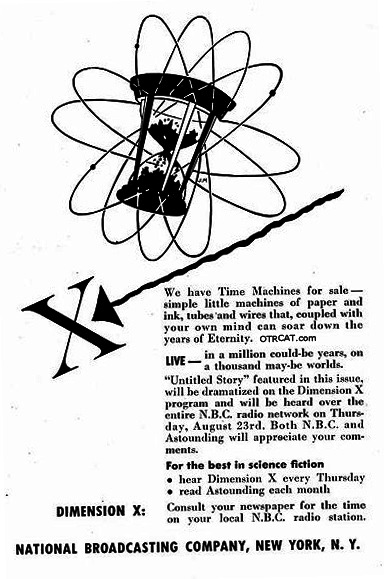
Posterity remembers Dimension X much better for several reasons. The first is that it licensed scifi stories by Arthur C. Clarke and Asimov and other writers to adapt. The second is that Dimension X used the first electronic instrument, the theramin, to give itself an eerie and distinctive, unearthly and futuristic sound. The theramin would later be used in 1954's Forbidden Planet, inspired by the Dimension X score, and something once played alongside orchestras would thereafter be the official sound of scifi, UFOs and arriving aliens.
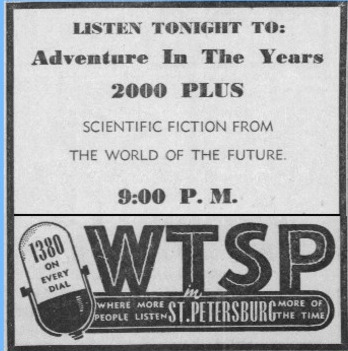
One would be forgiven for remembering that 2000-Plus premiered a full month before, and had completely original stories, as the first scifi program of any kind. Both shows wrapped up in 1951, which was around when radio itself started to be replaced by television.
Both are currently on archive.org, where they can be listened and downloaded in their entirety.
158 notes
·
View notes
Text
Dune: prophecy's "The Butlerian Jihad" Explained!
Dive into the lore of Dune with 'The Hidden Hand' from 'Dune: Prophecy' where the Butlerian Jihad comes to life. How does the screen version compare to the books?
0 notes
Text
I had this very old Soundwave doodle of him as a World War One British tank, I still think it's a really cool idea lol


#transformers#au#art#digitalart#character design#photoshop#decepticons#Soundwave#robot#mecha#doodle#wip#ww1#great war#history#world war one#redesign#scifi#fanon#fanart#original design
1K notes
·
View notes
Text
Star Trek fan, 1984.
764 notes
·
View notes
Text




WINONA RYDER & SIGOURNEY WEAVER as Call & Ripley ALIEN: RESURRECTION dir. Jean-Pierre Jeunet, 1997
#alien franchise#alien resurrection#alien#winona ryder#wryderedit#sigourney weaver#scifi#horrorgifs#horroredit#junkfooddaily#filmgifs#moviegifs#*m#tw flashing#useroro#useranusia#userbru#shesnake#useraina#awekslook#good fawking godddddd this is one of the most insane shots of cinema history sorry i nearly died#also winona throughout this enire film some of her absolute most stunning#i wanna make a whole set of her perhaps next week after my deadline
609 notes
·
View notes
Text

"Closest we can drop you in is a few kilometers below the array. After that you're on your own- vocal or close-range telepathy only. You know the drill. Give those yankee bastards hell."
Joint Sino-Soviet psiker operation. California front. 20xx.
905 notes
·
View notes
Text
People don't realize how liminal it is to be a time traveler. How you don't ever really feel like you're in the time you are. Even when you're in your own time, everything is off, your coat was something you bought in interwar France, the book you're reading on the train is from a bookstore you had to visit in Victorian London, even your necklace was given to you by a Neolithic shaman, from a culture the rest of the world can never know. You find yourself acting strange even when in the present, much less in the past you have to work in.
You remember meeting a eunuch in 10th century China, and having him be one of the only people smart and observant enough to realize you were from a diffrent time. You could talk honestly with him, though still you couldn't reveal too much about your time. And it was still so strange hearing him talk casually about work and mention plotting assassinations. You're not allowed to but you still visit him sometimes.
You remember that the few times you were allowed to tell someone everything it was tragic. You knew a young woman who lived in Pompeii, who you had gotten close to, a few days before she would inevitably die. On your last day there you looked into her eyes, knowing soon they'd be stone and ash, that the beauty of her hair would be washed away by burning magma. And you hugged her, and told her that you wanted her to be safe, and told her she was wonderful and that you wanted her to be comfortable and happy. And you let her tongue know the joy of 21st century chocolate, and her eyes see the beauty of animation, knowing she deserved to have those joys, knowing it wouldn't matter soon. And you hugged her the last time, and told her she deserved happiness. And when you left without taking her it was like you were killing her yourself.
You want to take home everyone you're attached to. There's a college student you befriended in eighteen fifties Boston. And you can't help but see him try to solve problems you know humanity is centuries away from solving. And you just want to tell him. And it's not just that, the way he talked about the books and plays he likes, his sense of humor. There's so many people you want him to meet.
You feel the same way about a young woman you met on a viking age longship. She tells stories to her fellow warriors and traders, stories that will never fully get written down, stories that she tells so uniquely and so well. She has so many great ideas. You want so dearly to take her to somewhere she can share her stories, or where she can take classes with other writers, where she can be somewhere safe instead of being out at sea. She'll talk about wanting to be able to do something, or meet people, and you know you're so close to being able to take her, but you never can, unless she accidently finds out way too much then you can't.
You remember the longship that you met that young storyteller on. You were there before, two years ago for you, ten years later for the people on it. The young woman who told you stories wasn't there ten years later, you had been told why then but you only realize now, her uncle, who ran the ship, had been one of the first people to convert to Christianity in his nation. He killed her, either for not converting or for sleeping with women, you're not sure, but he killed her, and bragged about it when you met him ten years later.
You talk to the storyteller on the longship, ask her about the myths you're there to ask her about, the myths that she loves to tell. You look into her eyes knowing it's probably less then a year until her uncle takes her life. You ask her if you think that those who die of murder go to Valhalla. She tells you she hopes not, she doesn't see Valhalla as a gift but as a duty, she hopes for herself to go to Hel, where she wouldn't have to fight anymore. You slip and admit you're talking about her, telling her that you hope that's where she goes when she's killed. You hope to yourself you'll be forced to take her to the twenty first century, you're tempted even to make it worse, you want to have ruined her enough to be able to save her.
#196#my thougts#worldbuilding#writing#my worldbuilding#my writing#urban fantasy#ancient history#history#short fiction#short story#original fiction#flash fiction#viking#viking age#norse mythology#ancient rome#pompeii#science fantasy#science fiction#sci fi#scifi#queer#queer history
921 notes
·
View notes
Text
Just learned that the word "robot" is derived from the Czech word "robota" which means "forced labor," coined in 1920 for use in the Czech play Rossum's Universal Robots (which! Yes! ROZZUM from The Wild Robot appears to be a reference to)
I'm usually p unwell about robots in literature as it is, but just thinking about it....... their very existence.... inextricably linked to the concept of humanity's greed, arrogance, and cruelty: those themes aren't just a byproduct of what the subject naturally entails, they're implanted deep into the heart of the word itself.........
...and yet, no matter how much we as story writers like to subvert tropes.... no matter how much we as society change, and our stories change with us.... we still can't help but to humanize them. In part because of our pack bonding tendencies, but also because we've seen all too well that a person doesn't need to be artificial to be treated as inhuman. After all, the ones made to do robota were originally humans... Ough.
#czech/czech speaking ppl feel free to take over cuz ik the word has more history and nuance than what's in the direct translation#but I don't wanna overstep talking about something I only have a wikipedia-deep understanding of#linguistics#etymology#robots#the wild robot#isaac asimov#megaman#I'm just slapping all my favorite robot fandoms in here I hope that's ok#scifi
219 notes
·
View notes
Text
Solarpunk Autumns. Solarpunk Winters.

Solarpunk as a genre exists in a state of a permanent summer. Both as a genre, and an aesthetic. Solarpunk pictures usually show us worlds that have everything in so many shades of green. Green bushes. Green trees. Green everything. Fields in Solarpunk are always filled with ripe corn and wheat. And trees in Solarpunk are full of ripe fruit.
But if we look into Solarpunk worldbuilding there is also the fact that of course at some point at many places of the world it will become autumn, and winter.
I mean, I am feeling it right now, sitting here in my bed with three blankets and shivering, as the summer has very suddenly ended.
Sure, Solarpunk originated from Brazil. And while I do not know a whole lot about Brazillian climate, I do understand that it is close enough to the equator to be fairly warm yearround.
But I honestly would love to see more stories and artworks set in Solarpunk worlds during the autumn and winter. Especially because it is a very interesting topic when it comes to both the renewable energies and the food systems of Solarpunk worlds.
Now, admittedly, the renewable energy is less interesting to me, but we still should talk about it. In winter and autumn a lot of the renewable energy sources are a bit less viable. The sun has less energy and the further north (or south) you go, the less sun you get during the winter. Wind turbines also often struggle because there is in fact too much wind - and some older turbines do not do too well during harsh winter conditions. Water usually has less of a problem, unless the water energy is created in shallow conditions where the water freezes. But of course, there is nuclear energy to take care of most issues, even if everything else fails - even though some people still do not want to hear about it.
The food aspect is a lot more interesting though, especially from a modern point of view.
Because we people today are very used to eating the same stuff year around. Like potatoes, carrots, bellpeppers, tomatoes, cabbage, oranges, apples, pears, and bananas are usually available in the supermarket no matter when you go there. But of course we also know that those only are there because of the rather destructive ways we use to cultivate food and bring it to us. These things usually are grown somewhere closer to the equator and then are brought to Europe/North America via plane, emitting a lot more CO2.
Of course, this is a fairly new development. For the most of human history, nobody - or only the very richest people - had access to imported food like that. So instead they would only eat was either was available in their own country and their own fields right now, or that they could conserve in some way or form.
And frankly... I think that is something I would like to see some more off in Solarpunk media. In people not needing everything to be available all the time. And people also working to conserve food in one way or another to make it last longer.
Also I do want to bring it up again: There were a lot of well known "winter vegetables" in Europe during most of our history there. Stuff that would get ripe in late autumn and would keep rather well. And a lot of those vegetables have been forgotten.
So... Yeah, I really would see that issue discussed a bit more.
And sure, we might be able to worldbuild around the issue in some degree with greenhouses and stuff. But I think it would be nice to just question our relation with the always available foods.
#solarpunk#lunarpunk#food culture#food#vegetables#fruits#renewables#renewable energy#history#scifi#clifi#climate fiction
259 notes
·
View notes
Text

“Hidden Fires”
Science Fantasy Novel
85K Words
When his sister finds herself stranded in a hostile city, Drake McCarty must leave the retaliative safety of his wilderness home to rescue her. The mysterious alien Bard accompanies him as whispers of ancient enemies drift down from the stars. Drake can feel his bond with this ancient warrior growing every hour, but will it be strong enough to withstand the revelations that await them in the crowded city, or will it shatter under Drakes own weakness.
Indiegogo: https://igg.me/at/HiddenFiresBook/x/20737048
#FoundFamily #ScienceFiction #SciFi #Aliens #NationalParks #Novel
#HiddenFires#FlyingSparks#DyingEmbers#BettyAdams#Alternate History#Found Family#SciFi#Science Fiction#Aliens#Pack#Wolves#Badass#Misunderstandings#slow build#soulmates#Cuddling & Snuggling#shapeshifting#Harm to Children#Shapeshifters#abduction#domestic#protectiveness#awkwardness
222 notes
·
View notes
Text
A History of Faster than Light Communications
One of the technologies taken for granted in science fiction and space opera is faster than light communication...or as scifi fans call it, an ansible. In reality, most communications are limited by the speed of light, so it takes a delay of a few minutes to send and receive messages even in a solar system. As 2001 pointed out, it would take 6 hours and back for a radio message to reach Saturn. A traditional radio signal sent to the closest star would take four years to arrive.
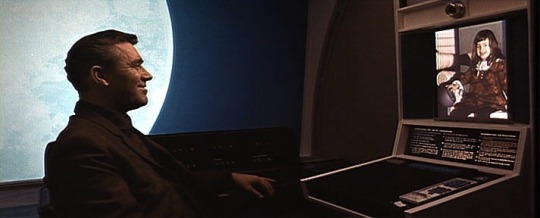
Isaac Asimov coined the term “ultrawave” or “hyperwave communications” in his Foundation novels in the 1950s, to refer to signals that propagate along “subspace,” a lower level dimension where travel is quicker. Only information can travel in subspace, but people and objects can’t. Jack Williamson mentioned “rhodomagnetic waves” in a few of his scifi stories, which function as a kind of intergalactic communicator, but also are the basis for a death ray, meaning in his universe, any ftl communication device can be rewired with a minimum of effort by a boffin into a lethal death ray.

In the 70s, Ursula K. le Guin popularized the term “Ansible” for this kind of communicator, instantly able to communicate regardless of distance. It’s this term that seemed to stick among fans and scifi culture, and most people with this device in their stories call it an “ansible” in homage to le Guin. Ansible communicators are just a part of scifi now, generic scifi worldbuilding, along with hyperspace travel, neuronic whips, space marines, and wisecracking robots. Many scifi writers have ansibles in their stories who are completely unaware of who originally coined the term and where.
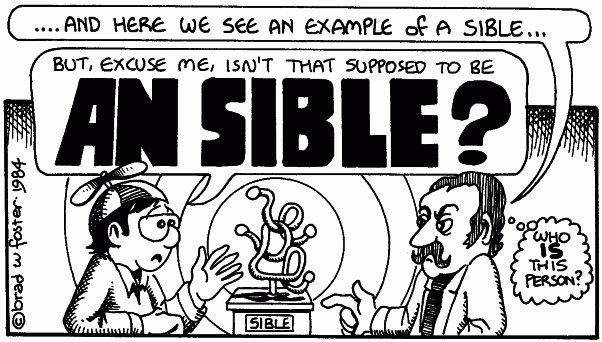
For most scifi writers, instant FTL communication is just a plot convenience to move the story along. Even Asimov, who made overthinking things his M.O., didn’t spend any extra time thinking about it. But James Blish however, put a lot of energy into figuring out how a faster than light or instant communicator would actually work....and he came to the conclusion it would be a technology with enormous philosophical, and indeed, practically religious implications.
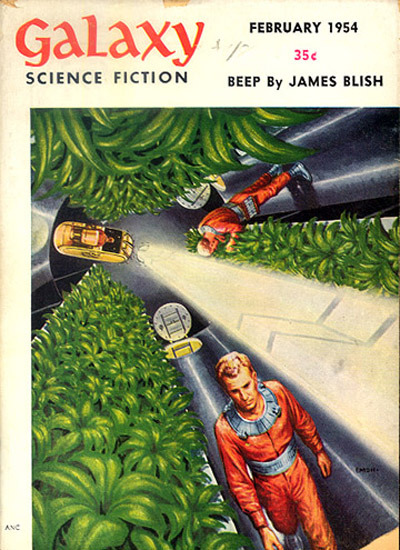
Here is what I mean by that. In his story “Beep” in 1954, James Blish came up with the idea of a Dirac Communicator, which is the usual instant, no delay ansible. But Blish reasoned that the only way instant faster than light communications could actually work without any delay is by sending a signal into a null-dimension without time, so every single message ever sent (past, present, future) is sent simultaneously in a timeless null point, with machines only able to decode the time-sealed relevant messages they receive.
If you stop and consider this, if a technology worked this way, it means that we live in a completely deterministic universe where all our decisions are made in advance. And as Blish was intelligent (and wiseassed) enough to point out in his 1954 story, it means that if faster than light communications actually work in the universe, that free will is an illusion, and that we actually do not have it. The universe is a watch proceeding on a predetermined pattern set at the moment of creation. An interesting conclusion to draw, all from a technology scifi takes for granted and sit in the background.
389 notes
·
View notes
Text

Maya Andreyeva is a "camera," a reporter with virtual-reality-broadcasting equipment implanted in her brain. What she sees, millions see; what she feels, millions share. And what Maya is seeing is the cover-up of a massacre. As she probes into the covert political power plays of a radically strange near-future Russia, she comes upon secrets that have been hidden from the world…and memories that AI-controlled thought police have forced her to hide from herself. Because in a world where no thought or desire is safe, the price of survival is betrayal - of your lover, your ideals, and yourself.
happy (re)publication day to The Fortunate Fall by Cameron Reed, the lesbian cyberpunk cult classic that's been out of print for almost 3 decades!
it's a dark, intense, haunting book (if somewhat dense and undeniably demanding) about the place where noble ideals and brutal reality meet, about human nature, about how far you're willing to go for your principles, or for love, or for survival, about the erosion of privacy by technology, and about a whale.
it's some of the best cyberpunk has to offer, i'm really glad it can finally reach a wider audience 👁📷🐋
#yayyy now i can recommend this book without the caveat that it's near impossible to find!#.txt#books#the fortunate fall#also since queer scifi history is kind of my thing:#it's worth noting that this is one of the *very* few 20th century sci-fi novels (that i know of at least) written by a trans woman!#old gay scifi saga
206 notes
·
View notes
Text
Space Patrol - British series (Videos, Roberta Leigh, produced 1962, aired 1963)
You can watch them here. From the Wikipedia article:
"The humanoids in his crew consist of the elfin Slim from Venus, and the stocky, ravenously sausage-mad Husky from the Red Planet, Mars. The imperfect Slavic accent variants and six-pointed star chest emblems of these two may have been a sly nod to the Jewish-Russian heritage of the English series creator/writer."
"The show reflected sex roles characteristic of the culture and era which produced it, but blonde and brainy Marla would often explicitly point out that "There are no dumb blondes on Venus." Indeed, the series was created and written by the prolific polymath artist Roberta Leigh, the first woman producer in Britain to have her own film company."
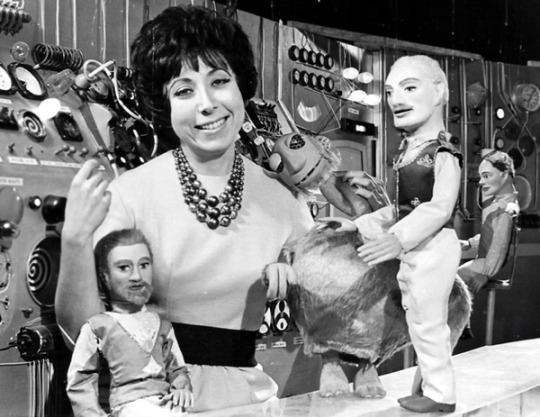
#internet archive#video#videos#old tv#old tv show#old tv series#tv history#television history#puppet#puppets#puppetry#female creators#scifi#sci fi#science fiction#60s sci fi#1962#1963#1960s#60s
115 notes
·
View notes
Text


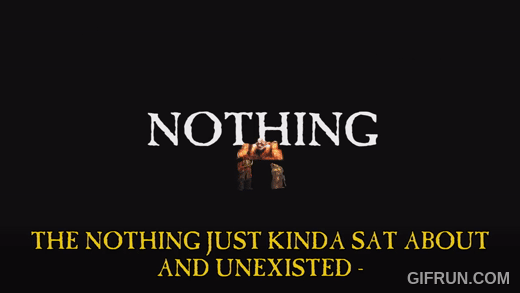






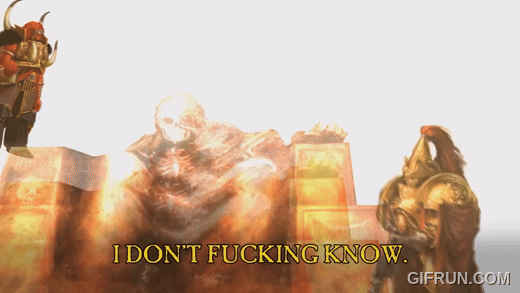




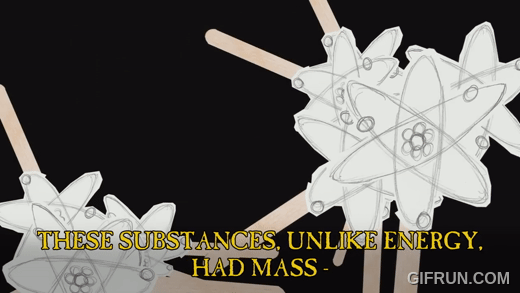
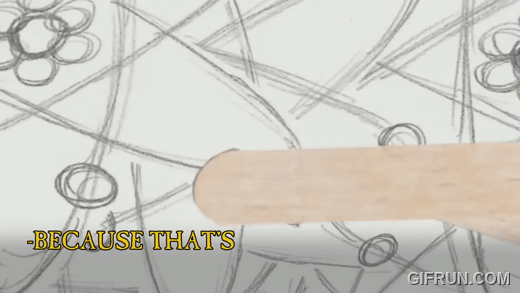
If the Emperor had a Text-to-Speech Device Episode 16 - Universal History with Professor Emperor
#if the emperor had a text to speech device#tts#wh40k tts#bruva alfabusa#animation#youtube#videos#warhammer animation#warhammer 40k#warhammer 40000#wh40k#scifi#animated series#comedy#funny#my gifs#my gifsets#warhammer tts#emperor of mankind#captain-general kitten#magnus the red#episode 16#universal history with professor emperor
59 notes
·
View notes
Text

Halloween Ball at the Art Institute of Chicago, 1949.
473 notes
·
View notes
Text
Imagine what it would be like for a society with 21st century level tech, on an earth that was both flat and infinite. Our society lead us to stop exploring at a certain point. Eventually trade caravans stopped finding new lands to trade with, and colonial empires stopped finding new places to destroy. But in a world like this that just wouldn't happen, first contact situations would be basically indefinite.
Think about what that would do to your sense of place in the world. Around the equivalent of the 1800s we'd probably figure out that there wasn't going to be an end. Some exploration would be haltered by things like massive uninhabitable zones (who knows how climate would work), but a 21st century society would always find ways.
Imagine living comfortably in a 21st century world and finding out about new first contacts, new contents, new cultures, new species, every day. There would be entire places, entire human civilizations, that you only learn exist as an adult. It would certainly change politics a lot (there are always new threats, and always new players on the board, and imperialism might be way worse of the wrong regime is doing the exploration). There would be an entire branch of anthropologist that exists to find new cultures. Scifi and fantasy would make up weird things that exist in hidden corners of the world.
There's no big thesis to this. Just thing it's an interesting normalweird worldbuilding concept. Could be very lighthearted. Could be very very dark.
#196#my thougts#worldbuilding#writing#my writing#my worldbuilding#fantasy#urban fantasy#magical realism#alternate reality#alternate history#scifi#science fantasy#science fiction#sci fi#scifi worldbuilding#science fiction worldbuilding#sci fi worldbuilding#my ideas#ideas#worldbuilding ideas
241 notes
·
View notes